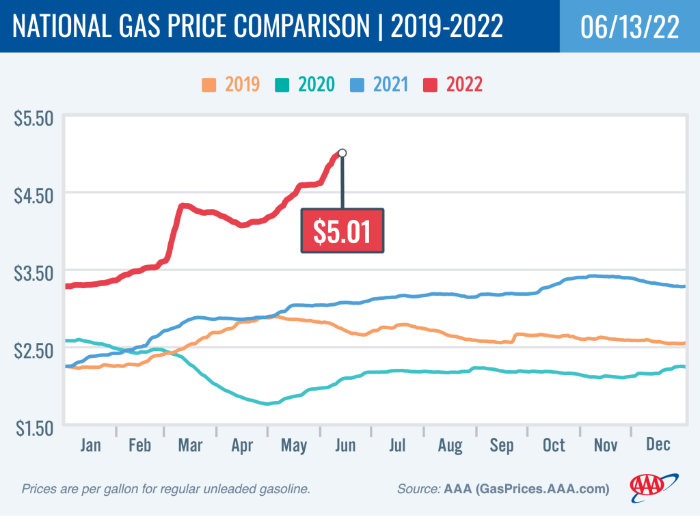In short:
- There’s a salmonella outbreak linked to backyard chickens
- US inflation rose to new 40-year highs
- DHS warns of heightened extremist threat heading into the midterms
Salmonella outbreak in backyard poultry across 38 US states: 200+ sick, one dead
Salmonella is bacteria causing (severe) diarrhea, fever, and stomach cramps for up to a week. I’ve seen it first-hand and it can be one hellish of a week (diarrhea and fever being the main culprits, with the sufferer in our case almost needing the emergency room). As with most illnesses, people with a weakened immune system (like children under 5, and those over 65) are most at risk of severe illness, and sometimes death.
Salmonella outbreaks tied to backyard poultry are common and mostly occur in the spring when most homesteaders buy baby chicks and other birds. According to the CDC, these Salmonella outbreaks are not related to the recent outbreak of H5N1 bird flu. However, the steps needed to stay healthy around flocks are similar for both diseases—win!
How to avoid infection:
- Wash hands for at least 20 seconds (2x singing Happy Birthday) after touching birds or their supplies, collecting eggs, etc.
- Keep birds and supplies outside the house—no more old Wilhelmina roaming the kitchen 🙁 🐔
- Use a dedicated pair of boots/shoes for the coop, and don’t bring them inside the house.
- Children under 5 should avoid touching the birds or anything else in the area. They are more at risk because their immune system is still developing, and they will likely put something dirty in their mouths, with dirty hands, etc.
Do you have a backyard flock? Quick tip: Keep a bottle of hand sanitizer at your coop! Many people across the U.S. have gotten sick with Salmonella from contact with backyard poultry, but you can stay healthy around your flock. Find more tips at: https://t.co/2OMG61xGRX. pic.twitter.com/dIFaZnCXD0
— CDC (@CDCgov) June 9, 2022
Economy, food security
US inflation rose 8.6% in May, setting a new 40-year record. Excess inventories at retailers might work against inflation, but may not be enough to convince the Fed to slow its pace of rate increases and reach a ‘soft landing.’ Social security benefits will likely rise 8% next year due to inflation. But much of the higher benefits could be eaten up by Medicare premium increases, which typically also rise each year. If you’re a visual type, here are five charts explaining why inflation is at a 40-year high. Opinion: Bringing inflation down is going to take time, patience—and pain. Here’s why a recession could hit in the first half of 2023.
Drought is threatening the European wheat harvest, adding pressure to global supplies.
US gas prices hit a new average high of $5 a gallon.

Study shows unionized workers in the US earn 10% more than non-union peers.
Here are some US cities and states testing universal basic income.
Shrinkflation is one way manufacturers try to keep costs down for consumers.
Keep working on your finances and on your pantry. LDS stores often have great prices for bulk buying. Here’s how to build your pantry using an LDS-inspired plan, and here’s a list of food items you can stock up at the supermarket. Or use a food bank to bulk up your pantry.
Climate, environment, extreme weather
An ESA satellite found a massive methane leak in the Gulf of Mexico. Pemex emitted 3.37 million tons of CO2 over 17 days or 3% of the country’s emissions. Methane traps more heat than carbon dioxide, but it only stays in the atmosphere for a decade. But since we need to cut emissions **now, it’s all the more important these leaks get discovered and dealt with asap. This is the first time satellite data has been used to find an offshore methane leak.
In a world first, New Zealand is going to tax cow and sheep burps starting in 2025 in an attempt to start curbing methane emissions (love the carbon hoofprint joke in this article). New Zealand is home to just over five million people, along with around 10 million cattle and 26 million sheep. Cows alone are responsible for about 40% of global methane emissions.
Pakistan’s water crisis is getting worse. Pakistan ranks 14 out of 17 “extremely high water risk” countries in the world and more than 80% of the country experiences “severe water scarcity.” Not only will this crisis affect Pakistan’s agriculture sector, which accounts for 23% of its GDP and employs 42% of its labor force, but it will pose an existential threat to energy and food security, and therefore national security.
Spain was hit by the hottest pre-summer heat wave in 20 years. And a wildfire broke out in the southern part of the country, forcing 2,000 to evacuate. Another wildfire ravaged the same area back in September, burning at least 7,780 hectares (30 sq miles).
The US will ban the sale of single-use plastic products in national parks and other public lands by 2032. The measure should keep more than 14 million tons of plastic out of the environment.
Scientists found out that superworms have gut bacteria that break down styrofoam. Scientists think that the worms’ gut enzymes could help recycling plants break down polystyrene, or even create bioplastics.
Lionfish skin can be used to make sustainable leather. Lionfish is invasive in many places, from Florida to Brazil, to the Mediterranean so having a market for lionfish (which is delicious, btw) could help local economies while getting rid of this pest.
Google Maps has a new air quality layer, which also includes PurpleAir’s hyperlocalized data. Community member Rick Rider shares their experience with using a PurpleAir monitor, and how that helps them make day-to-day decisions during wildfire season.
Here’s a guide to drought-resilient farm animals, and a list of ten drought-tolerant crops. Also, why raising goats is harder than you think.
Energy, EVs
The US proposed a new set of rules for charging EVs. The proposal, part of last year’s infrastructure bill, will:
- Invest $7.5B to install 500,000 chargers nationwide by 2030
- Require a minimum of four 150-kW connectors, every 50 miles and less than one mile from highways
- A better way to charge at stations with different hardware
- Make it illegal to make charging stations require membership or be part of a club
Now we only need to wait for more affordable EVs. Unfortunately, it’s still hard to find new lithium car batteries. Though EV batteries are often called lithium batteries, their major components are nickel and cobalt. China produced nearly 80% percent of all lithium-ion batteries in 2021. Russia is a major producer of nickel and cobalt. Currently, there is only one lithium mine in the United States, and the largest lithium reserves are in Afghanistan.
Speaking of EVs, the first owners of the F-150 Lightning are sharing their experiences.
Lightyear unveiled its first solar-assisted car. The vehicle has 388 miles of range (on its electric battery), 44 of which by solar alone. The main downside? A $263,000 price tag. However, a $33,000 model from the same company could go into production by 2025.
Nuclear waste could power the US for 100 years, but the technology was never commercialized. Currently, Russia is the only country using fast reactor technology to produce electricity. China and India plan to build commercial fast reactors in the future.
The rest
The US Department of Homeland Security has warned that there’s a heightened extremist threat heading into the midterms. Here’s our guide on how to prepare for and survive civil unrest, and a list of relevant blog and forum posts. Also related, a guide on how to harden your home against intruders.
Putin hinted at what could be his next target (if there is a next target): the Baltic states of Latvia, Lithuania, and Estonia.
A recent update can allow hackers to steal Teslas by creating their own personal keys.
The US is dropping compulsory Covid tests for incoming international air travelers.
Water might not boil in a hot car, but you can definitely cook in it (skip to 0:43):

You are reporting the comment """ by on